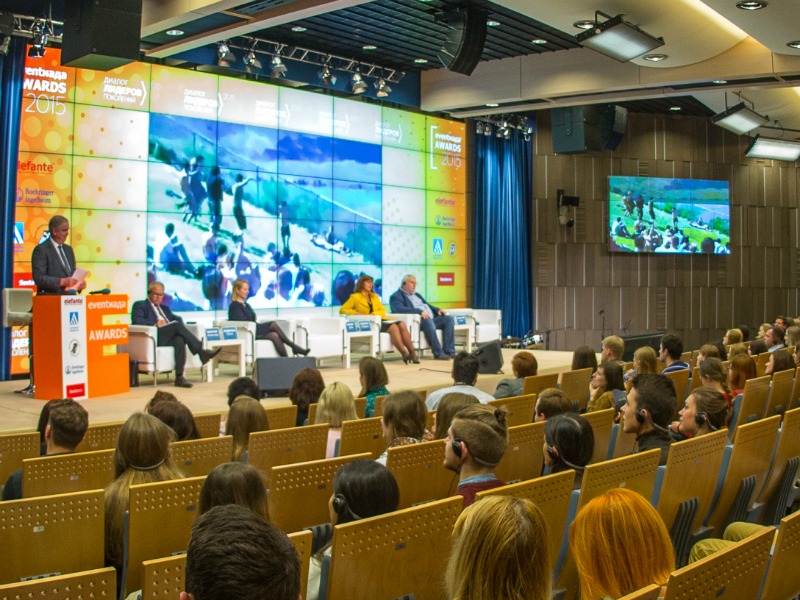Holmes Report 11 Nov 2016 // 9:38AM GMT

MOSCOW — New research that compares the views of different generations illustrates the pace of change occurring across the media and communications landscape in Russia, Hungary, Poland, Belarus, Ukraine and Kazakhstan.
The Future Outlook Research study, presented at today’s Leadership Dialogue Forum in Moscow, surveys both communications executives along with students and teenagers across the six countries.
Reflecting considerable media disruption, 20% of respondents across age groups believe new types of media that have not even been invented yet will shape communications within the next five years, a proportion that is led by students and teenagers. 35% see digital/social media as leading, compared to 7% who opted for the broadcast media (TV and radio). Only 1.8% bet on print media future leadership.
“This is a huge shift – every fifth respondent anticipates in just five years the rise of new media types which do not yet exist, but will be dominating the news field of the future,” said Alexey Safronov, Orta Communications Group general director and Leadership Dialog Forum president. “If we look at age group spread, this is the opinion of 27% teenagers, 20% students, 20% public sector workers and 14% corporate professionals. This means that professionals are those who are most satisfied by the current media landscape, while generation Z expects and seeks major shifts in this area and are looking forward to appearance of completely new types of media to satisfy the wish for completely new and different way of news consumption when they come of age.
When it comes to long-term media development, respondents rated ‘accessibility’ as the top criteria, ahead of ‘high-speed’. When it came to the third-ranked criteria, there was a split — teenagers and students opted for ‘rich content’, while professionals pointed to ‘truthfulness and interactivity.’
"New technology continues to shape and transform media landscape,” says Kirill Alyavdin, corporate communications director at Tele2 Russia. “We can see how major publishing houses focus on mobility, rich multimedia and multi-channel communications with their readership. This survey reveals, for example, that 73% of respondents already watch TV via smartphones, and that generation Z – teenagers – are especially active in using this service (81%).”
Significantly, communications skills (71%) are ranked as the most important characteristic of future leaders, ahead of ‘care and thought about people’ (66%) and ‘general open mindedness’ (63%). Other important virtues include ‘professional honesty and transparency’ (52%), ‘commitment to the idea they work on’ (52%) and ‘intelligence’ (51%).
The survey also reveals how different age groups rate differing professions. Only 5% of students and 2% of teenagers, for example, believe in the future growth of celebrity influence; while 9% of communications executives suggest that celebrities will still be growing as important influencers.
Most participants believe IT-specialists and programmers will be the leading professions in the future (22%), followed by communications professionals of various types, as well as technical engineers, experts on robots. However, the younger generation rates more creative occuptations — such as designer, blogger, advertiser, content-manager — as professions of the future. In contrast, more experienced professionals are more conservative — opting for such professions as scientist, doctor, teacher and public figure.
Respondents also believe that working in communications is an outstanding opportunity to bring positive changes to society (10%), promote valuable information (10%) and grow within an interesting profession. Teenagers are attracted to the sector by its rich opportunities for communications (23%), to bring positive changes to society (14%) and by overall growth prospects.
“There is a huge belief that communications as a discipline in the future should be focused on making an ongoing contribution to building truthful, authentic and timely information and news,” said FleishmanHillard Vanguard general director Elena Fadeeva. “It also should bring public good and enrich people’s lives as noted by 37% of all respondents. The younger generation proves to be the most sensitive about the role of public good: 54% of teenagers think that communications must be focused on improving people’s lives.
“Communications professionals also see a high role of communications in raising corporate social responsibility – 18% from corporate world and 13% from public sector. Additionally, corporate executives recognize that communications in the future should be contributing more to creating added value for businesses (10%). Overall it is important to note that both executive and students and teenagers want to see communications as an honorable disciple and noble profession with clear public-serving objectives and a role of making a positive change in the society.”


































.jpg)




.tmb-135x100.jpg)












